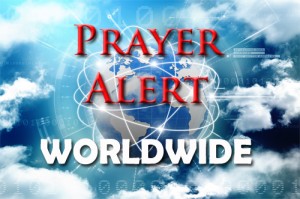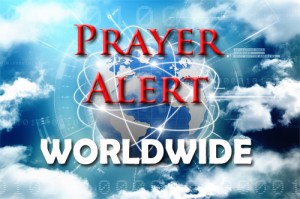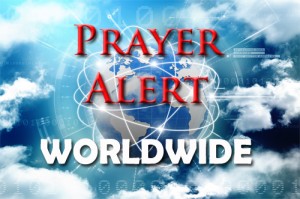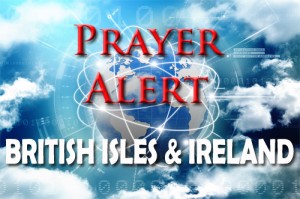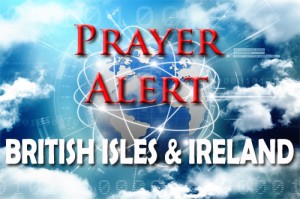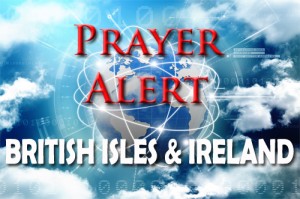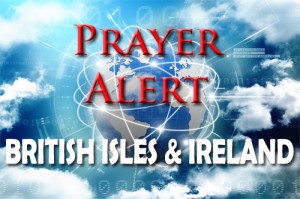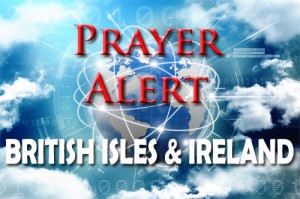
David Fletcher
David Fletcher is Prayer Alert’s Editor.
He is part of a voluntary team who research, proof-read and publish Prayer Alert each week.
If you would like to make a donation towards our running costs, please click here.
In Louisiana, Americans United decided to sue a school district earlier this year, asserting, ‘School officials throughout the school system coerce students into religious practices and subject them to unwelcome religious messages and indoctrination.’ They did not want prayers being delivered during school-sponsored events, school events held in churches, or teachers encouraging Christianity in the classroom. The school board voted to fight the lawsuit. Pray for their defence of Christian values to be successful in the law courts. In Pensacola, Florida, a panel upheld a ruling ordering the removal of a cross from a public park, stating that they were ‘bound by existing circuit precedent’. But two of the three judges said they were uncomfortable with the result, and called upon the full circuit court to overturn their own ruling. The argument is ongoing.
Bad blood and a thirst for revenge divide people in Mosul, the former IS capital. Many local residents welcomed the jihadists who promised protection from corruption, jobs and security. The promises proved false, but thousands in Mosul still pledged allegiance to IS; some driven by IS propaganda, others by hunger or simply fear. Currently men who worked as IS enforcers or officials are still living in Mosul. Local police pursue them nightly, raiding houses and questioning families of suspected IS members. Some police and civil defence workers who have had relatives killed by IS are now working out their hatred and revenge on unconfirmed suspects, and many residents face suspicion and abuse due to guilt by association.
Iraq’s parliament will select the president on 25 September, then elect a prime minister, and that will eventually lead a new government. On 15 September Mohammed al-Halbousi was elected as speaker. He had previously had a good relationship with the USA which, with Iran, were the first countries to congratulate him on his new post. However, his first two statements to parliament denounced US sanctions against Iran and invited senior Iranians to visit Baghdad. Pray for the networking of leaders at home and abroad in the weeks leading up to the election of a prime minister - the most important and influential position in the government, and therefore requiring a broad agreement among multiple political parties.
HOPE are delighted by the number of churches using Mission Academy Live with their young people, and they are excited by the opportunity to recruit and train 60 more young evangelists in the coming year. Mission Academy Live, in ten innovative video-based sessions, aims to empower young people as missional disciples within a small group context. With a focus on peer-to-peer evangelism, each session provides an understanding of today's contemporary context, with teaching, discussion, and testimony, all leading to a practical response. Through accountable relationships, this first-of-its-kind evangelism and discipleship tool encourages young people to be intentional, authentic, united, and obedient to the call and command of Christ to ‘go,and make disciples’.
Kofi was eight years old when his mother introduced him to a nice man who told them he would take Kofi to live with him and enrol him in school, giving him the future his mother couldn’t give him. It was all a lie. For two years, Kofi was a slave to a boatmaster on Lake Volta in east Ghana. He woke at dawn to dive deep into the lake, holding his breath as he used his small fingers to untangle the nets caught on underwater tree stumps. He knew some boys drowned doing this. One day a strange boat pulled near. He knew it was different from others he’d been on when someone handed him a lifejacket to ensure he was safe. The boat was filled with police and IJM workers. Pray that IJM fulfils its plan to ‘eliminate the slave trade everywhere’.
The worst thing our journalists could do would be to distort the truth, and it would be appalling if MPs acted in their own interests, or the interests of louder tempting voices, rather than their constituents’ interests. However, according to the media, there have been discussions in Westminster around bringing down the Prime Minister. The Independent ‘reported’ that Theresa May faces a leadership challenge within days, and fifty hard Brexiteers are in ‘open revolt’ against her while ‘Boris Johnson prowls the Palace of Westminster’. Robert Peston reported that rebel MPs in the European Research Group, led by Jacob Rees-Mogg and Steve Baker, were having detailed discussions around leadership election rules. We can pray for the Holy Spirit to cool the heated atmosphere in Westminster and for refreshing currents of Godly wisdom and truth to flow through media comments. Pray for Jesus to remove all confusion and divisive conversations, and lead MPs in the direction that best serves their constituents.
Responding to the final report by the Commission on Religious Education, the CofE’s education officer said, ‘This report calls for a new vision for religious education, which is vital if we are to equip children for life in the modern world where religion and belief play such important roles. It is also timely, given the falling numbers of students taking RE at GCSE and A level since the introduction of the English Baccalaureat.’ The CofE’s education vision is deeply Christian, with Jesus' promise of 'life in all its fullness' at its heart. It was good to see the commission endorsing an approach already being used in church schools. However, further work is needed to ensure children develop religious and theological literacy as part of their understanding. The Secular Society’s response was that they were in broad agreement with the suggestions, but wanted the last say to be from educationalists, not the pre-existing religious education community. See
Guidance for teaching about relationships and sex in schools is being drafted, and will soon be put before Parliament. It is an important time in the development of sex and relationships resources. Sex education is intended to influence attitudes and behaviours and improve sexual health. Whether or not improvements occur depends on the curriculum. It is currently driven by STIs concerns, the adequacy of consent, and teenage pregnancy (the UK has the highest rate in Western Europe). Advice given by leading campaigners is devoid of references to morality, marriage, or family life. It talks about sex as a normal and pleasurable fact of life for youngsters, stressing contraception as most important. It has nothing to say about the moral context in which sex is to be enjoyed; no reference to fidelity and exclusivity. For the full report from the Christian Medical Fellowship, click the ‘More’ button.
Christians in Politics is an all-party, non-denominational organisation which encourages and inspires Christians to get involved in politics and public life. Emphasis is placed on membership of the Kingdom of Jesus Christ, as opposed to the earthly allegiances which may separate us. Their vision is for Christians to respond to God's call to engage in party politics and government. Their mission is to make the biblical case for participating in party politics heard by Christians, and then to connect them and their churches to people or organisations which can help them engage politically. At this time of Brexit debates and disputes, we can pray that more Christians participate in decision-making, rather than criticising or commentating from the sidelines. May there also be a growing movement of wise, informed prayers for all our leaders in the coming months.
A YouGov poll for the Sutton Trust indicates widespread cheating among middle-class families to win a place at the school of their choice. One in three parents know families who have used ‘ethically dubious’ tactics, though they are less likely to admit to fraudulent tactics themselves. 16% from all social groups personally knew families who used a relative’s address to secure a place. 20% from the highest social group knew someone who had either bought or rented a second home in the catchment area of a good school. The most commonly used tactic to get into more desirable schools is to develop a newfound faith and attend religious services to meet school admissions criteria where pupils are selected on the basis of church attendance.

